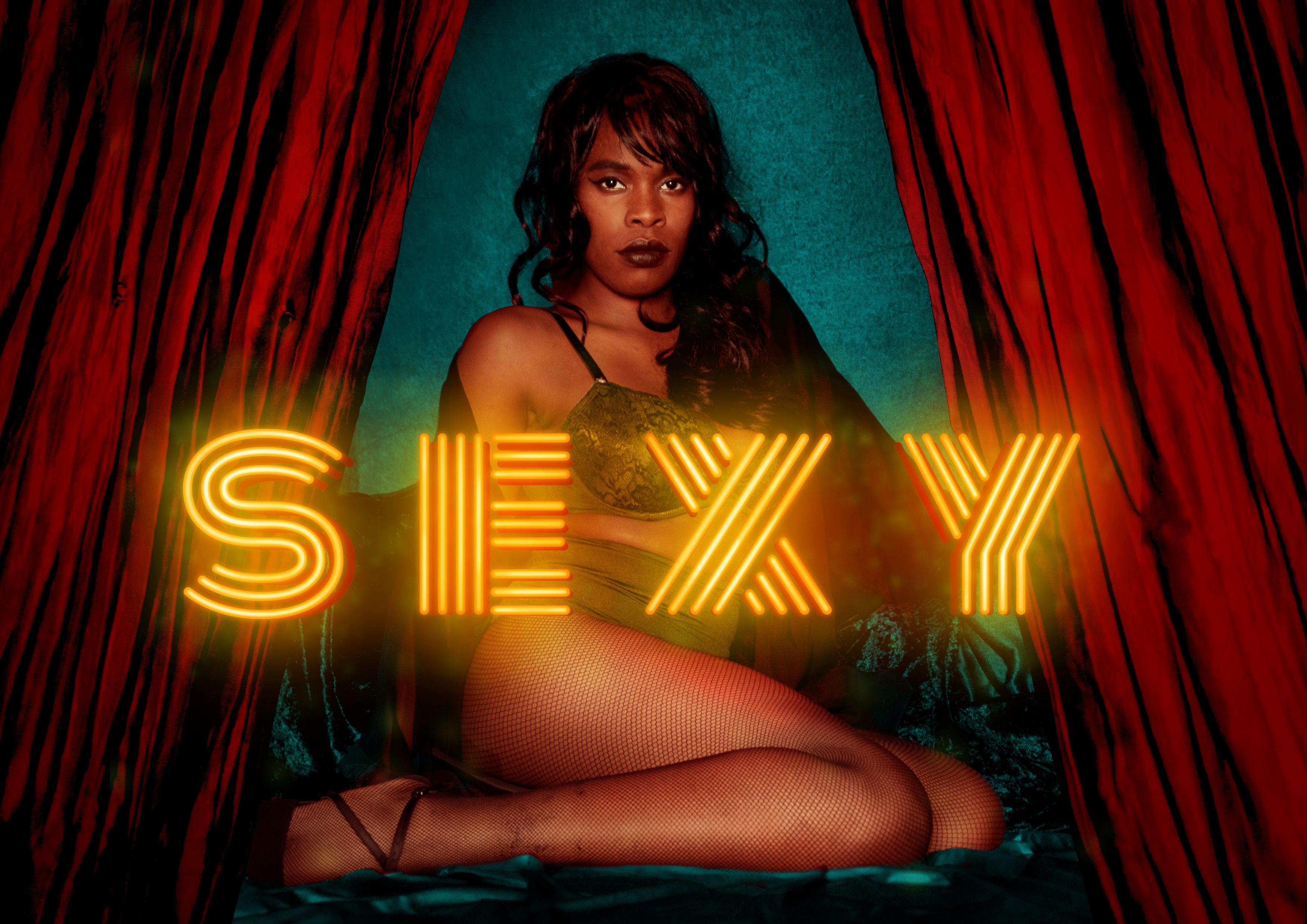As the audience enters the auditorium, ‘Lady Marmalade’ blares from the speakers. Moments later a woman appears apologetically in her underwear. It is as apt an introduction to Vanessa Kisuule’s Sexy as any, anticipating the clash of pop culture, personal experience and cutting critique ahead.
Kisuule’s performance bills itself as a one-woman investigation of our ‘conflicted relationship with our bodies and sexiness’, through comedy, dance and spoken word poetry. That’s certainly what the audience gets, as Kisuule navigates her yearning to be sexually desirable. Kisuule is an incredibly funny performer, encouraging the audience to mock the ridiculousness of our sex-obsessed culture, as well as the antics of her younger self. Yet there are moments of real pain too, periods when the jocular feminist humour breaks and we see the individual behind the “sexy”. With ease, Kisuule moves between lip-synching to her black female idols from noughties music videos and confronting the self-imposed guilt she feels when she does conform to sexual standards. She makes it clear that sexiness is inherently embedded in mass culture and thus very hard for even the most stridently empowered woman to eschew.
The aforementioned semi-nudity exemplifies how proficiently Kisuule plays with the power of sexuality. As the show begins she cowers to the right of the stage, her affected reluctance to take to the spotlight confronting the audience with our own awkwardness at the unfiltered female form. From the audience, there seems an instinctive uncertainty about where to look, as though we all recognise the potentially reductive power of our gaze and are unsure where to place it. But quickly Kisuule reclaims this gaze; she defines her body in her own words, telling us about both her cup size and how uncomfortable her pants are, setting up a juxtaposition between what is conventionally sexy and what isn’t that will thread its way throughout the whole show.
The form of “sexy” under review in the performance is shaped by Kisuule’s experiences growing up. Thus race is as prominent as gender, and makes for some of Sexy’s most poignant moments. Kisuule’s monologue on her experiences of dancing in clubs is the show’s most powerful moment; her words are unsettling and only heightened by film of blackface performances, black female musicians and white tourists on safari, which are projected across both her and the stage. Kisuule’s poetry tells her personal narrative, whilst the film makes the link to broader cultural histories.
Though the show is fascinating, the ending is a touch unsatisfactory. Having set up a series of binaries and juxtapositions, Kisuule strives to reconcile these, but doesn’t quite manage to do so. Throughout the performance a suitcase and clothes sit at the side of the stage, and in the final moments Kisuule puts this outfit on. The black underwear and translucent drape she has worn throughout is swapped for a patterned shirt, denim shorts and red boots, before the straightened wig is also removed to reveal her natural hair. It seems that in the tension between sexy and feminist Kisuule chooses the latter, leaving a desire for a more subversive ending – after all, why can’t feminism be sexy in itself? During the post-show discussion Kisuule suggests she believes it can be, but this was not conveyed in the performance itself. Though Sexy is brilliant when exploring and critiquing sexiness, it falls short when articulating an alternative.
Sexy is an exuberant and exhilarating performance, especially given this is Kisuule’s first piece of theatre. She shows herself to be a captivating performer and poet, oozing confidence which brings an audience into her confidence and makes her criticisms all the more compelling. But hearing Kisuule speak outside the performance suggests that something is lost in translation to the stage – find this and Sexy would be complete.

